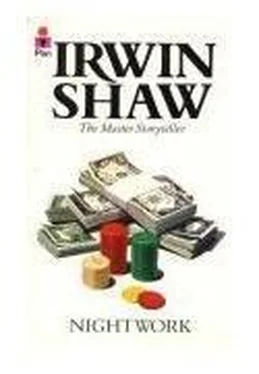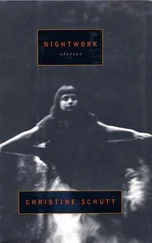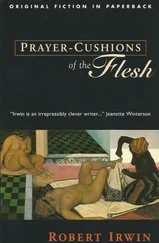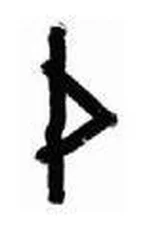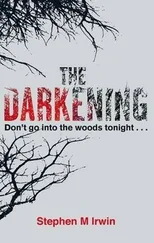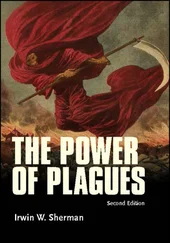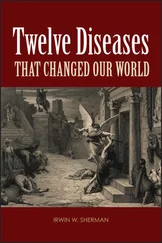Irwin Shaw - Nightwork
Здесь есть возможность читать онлайн «Irwin Shaw - Nightwork» весь текст электронной книги совершенно бесплатно (целиком полную версию без сокращений). В некоторых случаях можно слушать аудио, скачать через торрент в формате fb2 и присутствует краткое содержание. Жанр: Детектив, на английском языке. Описание произведения, (предисловие) а так же отзывы посетителей доступны на портале библиотеки ЛибКат.
- Название:Nightwork
- Автор:
- Жанр:
- Год:неизвестен
- ISBN:нет данных
- Рейтинг книги:3 / 5. Голосов: 1
-
Избранное:Добавить в избранное
- Отзывы:
-
Ваша оценка:
- 60
- 1
- 2
- 3
- 4
- 5
Nightwork: краткое содержание, описание и аннотация
Предлагаем к чтению аннотацию, описание, краткое содержание или предисловие (зависит от того, что написал сам автор книги «Nightwork»). Если вы не нашли необходимую информацию о книге — напишите в комментариях, мы постараемся отыскать её.
Nightwork — читать онлайн бесплатно полную книгу (весь текст) целиком
Ниже представлен текст книги, разбитый по страницам. Система сохранения места последней прочитанной страницы, позволяет с удобством читать онлайн бесплатно книгу «Nightwork», без необходимости каждый раз заново искать на чём Вы остановились. Поставьте закладку, и сможете в любой момент перейти на страницу, на которой закончили чтение.
Интервал:
Закладка:
Stake, I wrote, 20,000. Gold – 15,000, Bridge and backgammon – 36,000 … Movie?
I stared at what I had written, half-hypnotized. Before this, even when I was making a comfortable living at the airline, I had never bothered to add up my check-book and certainly had not known within a hundred dollars what I was worth or even how much I had in my pocket at any given time. Now I resolved to keep an accounting every week. Or, with the way things were going, every day. I had discovered one of the deepest pleasures of wealth – addition. The numbers on the page gave me a greater satisfaction than I could hope to get from buying anything with the money the numbers represented. Briefly, I wondered if I should consider this a vice and be ashamed. I would wrestle with this at a later time.
I heard an unmistakable sound from the next room and winced. How far could I trust Fabian? His attitude toward money, his own and that of others, was, to say the least, cavalier. And there was nothing in what I knew of his character and background that suggested an unwavering commitment to fiscal honesty. Tomorrow I would demand that we write out a firm legal document. But no matter what we had on paper, I knew I would have to keep him in sight at all times.
When I finally fell asleep, I dreamed of my brother Hank, sat at his adding machines, working on other people’s money.
In the morning we finally had a chance to talk. Lily was going to the coiffeur to get her hair done and Fabian said he wanted to take me to see the Maeght Museum at St-Paul-de-Vence.
We set out from Nice, with Fabian at the wheel of the rented car. There was little traffic, the sea was calm on our left, the morning bright. Fabian drove safely, taking no risks, and I relaxed beside him, the euphoria of the evening before not yet dispelled by daylight. We drove in silence until we got out of Nice and past the airport. Then Fabian said, “Don’t you think I should know the circumstances?”
“What circumstances?” I asked, although I could guess what he meant.
“How the money came into your hands. Why you felt you had to leave the country. I imagine there was some danger involved. In a way, now, I may be equally endangered, wouldn’t you say?”
“To a certain extent,” I said.
He nodded. We were climbing into the foothills of the Alpes Maritimes, the road winding through stands of pine, olive groves, and vineyards, the air spiced and fragrant. In that innocent countryside, under the Mediterranean sun, the idea of danger was incongruous, the haunted dark streets of night-time New York remote, another world. I would have preferred to keep quiet, not because I wanted to hide the facts, but from a desire to enjoy the splendid present, unshadowed by memory. Still, Fabian had a right to know. As we drove slowly, higher and higher into the flowered hills, I told him everything, from beginning to end.
He listened in silence until I had finished, then said, “Supposing we were to continue to be as successful in our – our operations” – he smiled – “as we have been until now. Supposing after a while we could afford to give back the hundred thousand and still have a decent amount left for our own use… Would you be inclined to try to find out who the original owner was and return the money to his heirs?”
“No,” I said. “I would not be inclined.”
“An excellent answer,” he said. “I don’t see how it could be done without putting someone on your trail. On our trail. There must be a limit to wanton curiosity. Has there been any indication that people have been searching for you?”
“Only what happened to Drusack.”
“I would take that as fair warning.” Fabian made a little grimace. “Have you ever had anything to do with criminals before this?”
“No.”
“Neither have I. That might be an advantage. We don’t know how they think, so we won’t fall into the dangerous pattern of trying to outwit them. Still, I feel that so far you’ve done the right thing. Keeping constantly on the move, I mean. For a while, it would be wise to continue. You don’t mind traveling, do you?”
“I love it,” I said. “Especially now that I can afford it.”
“Did it ever occur to you that the people involved might not have been criminals?”
“No.”
“I read in the newspapers some time back about a man who was killed in an airplane crash and was found with sixty thousand dollars on him. He was a prominent Republican and he was on his way to Republican headquarters in California. It was during Elsenhower’s second campaign. The money you found might have been a campaign contribution that had to be kept secret.”
“Possibly,” I said. “Only I don’t see any prominent Republican coming into the Hotel St Augustine for any reason whatsoever.”
“Well…” Fabian shrugged. “Let’s hope that we never find out whose money it was, or who was supposed to get it. Do you think you’ll ever see the twenty-five thousand dollars you loaned your brother?”
“No.”
“You’re a generous man. I approve of that. That’s one of the nicest things about wealth. It leads to generosity.” We were entering the grounds of the museum now. “For example, this,” Fabian said. “Superb building. Glorious collection, marvelously displayed. What a satisfactory gesture it must have been to sign the check that made it all possible.”
He parked the car and we got out and started walking up toward the severely beautiful building set on the crest of a hill, surrounded by a green park in which huge angular statues were set, the rustling foliage of the trees and bushes all around them making them seem somehow light and almost on the verge of moving themselves.
Inside the museum, which was nearly deserted, I was more puzzled than anything else by the collection. I had never been much of a museum-goer, and what taste I had in art was for traditional painters and sculptors. Here I was confronted with shapes that existed only in the minds of the artists, with splotches on canvas, distortions of everyday objects and the human form that made very little sense to me. Fabian, on the other hand, went slowly from one work to another, not speaking, his face studious, engrossed. When we finally went out and started toward our car, he sighed deeply, as though recovering from some tremendous effort. “What a treasure-house,” he said. “All that energy, that struggle, that reaching out, that demented humor, all collected in one place. How did you like it?”
“I’m afraid I didn’t understand most of it.”
He laughed. “The last honest man,” he said. “Well, I see that you and I are going to put in a lot of museum time. You eventually cross a threshold of emotion – mostly just by looking. But it’s like almost any valuable accomplishment – it has to be learned.”
“Is it worth it?” I knew I sounded like a Philistine, but I resented his assumption that it was my duty to be taught and his to teach. After all, if it hadn’t been for my money, he wouldn’t have been on the coast of the Mediterranean that morning, but back in St Moritz, scrambling at the bridge table and the backgammon board for enough money to pay his hotel bill.
“To me it’s worth it,” he said. He put his hand on my arm gently. “Don’t underestimate the joys of the spirit, Douglas. Man does not live by caviar alone.”
We stopped at a cafe on the side of the square of St-Paul-de-Vence and sat at a table outside and had a bottle of white wine and watched some old men playing boules under the trees in the square, moving in and out of sunlight, their voices echoing hoarsely off the old, rust-colored wall behind them that had been part of the fortifications of the town in the Middle Ages. We sipped the cold wine slowly, rejoicing in idleness, in no hurry to go anywhere or do anything, watching a game whose outcome would bring no profit or pain to anyone.
Читать дальшеИнтервал:
Закладка:
Похожие книги на «Nightwork»
Представляем Вашему вниманию похожие книги на «Nightwork» списком для выбора. Мы отобрали схожую по названию и смыслу литературу в надежде предоставить читателям больше вариантов отыскать новые, интересные, ещё непрочитанные произведения.
Обсуждение, отзывы о книге «Nightwork» и просто собственные мнения читателей. Оставьте ваши комментарии, напишите, что Вы думаете о произведении, его смысле или главных героях. Укажите что конкретно понравилось, а что нет, и почему Вы так считаете.
